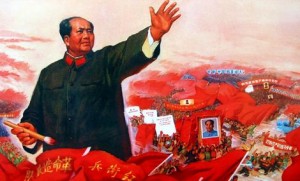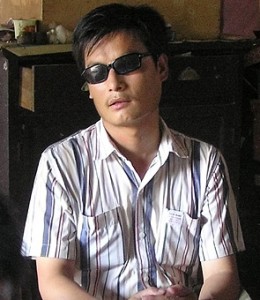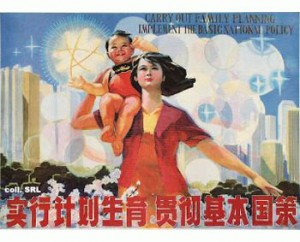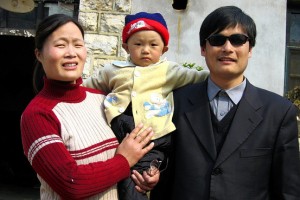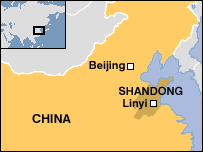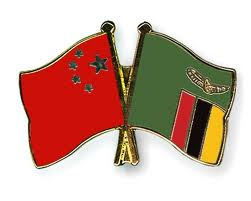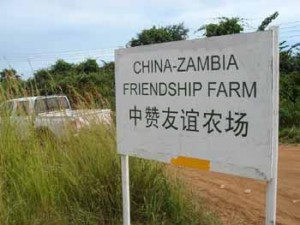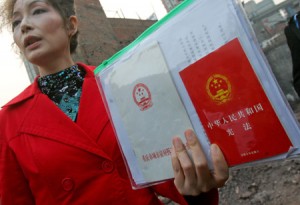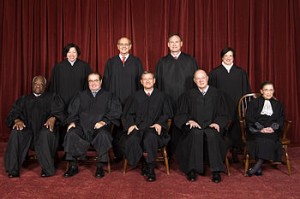
Pleco Founder & CEO, Michael Love
Perhaps not since Prof. John DeFrancis, with his publication in the early 1960s of the 12 volume series of Mandarin Chinese textbooks, has anyone so revolutionized the study of Chinese like Michael Love. In 1999, while living in Beijing between high school and college, Michael became so frustrated with the time and effort it took to look up an unfamiliar character in a Chinese dictionary that he used his computer skills to create an electronic dictionary for his Palm Pilot. Soon other students in his class were buying Palm Pilots just so they could use Michael’s software. Upon his return to the States, and while he was studying computer science at Harvard, Michael founded Pleco, an online Chinese-English, English-Chinese dictionary where students of the language can look up Chinese characters via pinyin, handwriting, or camera phone. Yes, before the age of 20, Michael was well on his way to starting his own company and changing the way Americans learn Chinese.
Fortunately for China Law & Policy, Michael Love is not just a symbol of American ingenuity, but also very generous with his time. After releasing the Droid version of Pleco, Michael sat down with China Law & Policy to muse about the way we learn languages, the future of Pleco, and the obstacles he faces as an internet company in doing business in China.
Click here to listen to the interview with Pleco founder and CEO, Michael Love or read below for the entire transcript.
Length: 27 minutes (audio will open in a separate browser)
***********************************************************************************
[1:08]EL: Thank you for joining us today Michael. So after more than 10 years in the business, where are we today with Pleco?
[1:16] ML: I just finished what I call a major transitional period, basically because smartphones themselves and mobile devices themselves have just gone through a huge transition. Most of our efforts the last three to four years have been focused getting from the sort of old-fashioned PDAs – windows mobile, palm pilots – to the iPhone and Android– to the modern devices people want now. And there’s a lot of changes built; it gives us a lot more capabilities: obviously much faster hardware, much better and bigger screens, but also different interfaces. People now are controlling the device with their fingers instead of styluses. That has really forced us to redesign a lot of things, rethink the way we do a lot of things. There is better internet connectivity. These have all influenced the design of our software.
[02:08] So we – I wouldn’t say have been treading water – but we’ve been kind of spending a lot of time dealing with those issues and not so much time lately on expanding our notions of what we can do with electronic Chinese learning and now we’re getting back in the direction of new stuff again. We are thinking of interesting new features we can add; new things we can do with flashcards; new ways of looking up characters. We’re shifting back from this platform-focused phase to a phase were we are more thinking about Chinese again, which honestly is really much more fun.
[02:42] As far as how Pleco is doing, we have several orders of magnitude more customers than we have ever had before. The App Store is awesome, the Android Market is pretty awesome; people looking for a Chinese dictionary with a few buttons can download our app, try it out. So our reach has expanded enormously and that’s great. We make apps because we like for people to use our apps; we want to help people learn Chinese, and if we can do that for more people, that’s great. We love this transformation and now that were finally up to date, now that we are finally on iPhone, Android, iPad and all sorts of other stuff, we can once again turn back to improving Chinese learning for everyone.
[03:24] EL: So you guys just released – Pleco just released its Droid app. So it is downloadable now for the Droid?
[03:29] ML: Yeah. Android Market. Just [type in] P-L-E-C-O. It should be the first thing that comes up. Though since Pleco is actually a type of fish, a type of aquarium catfish, there

Pleco the catfish
are actually a few apps related to the catfish that will come up too. But the first app you look for P-L-E-C-O in Android Market should be ours
[03:49] EL: So in terms of some of the other technology, you now have OCR [“Optical Character Recognition”] software that can recognize a character if you take a picture of it. Can you tell us more about that?
[03:59] ML: Yeah, this is something that has been floating around actually as an idea for years, and years, and years. People were writing this way back when the first Palm Treo with a little dinky VGA camera you can use for taking postage stamp like photos that didn’t really look very good.
[04:17] People have been saying “hey wouldn’t it be good to take a picture of a character and look it up” for a long time and finally – summer 2010 – Apple released a new version of IOS that added, for the first time, a really good direct way to get at what phone cameras see and do stuff with it. That combined with the latest generation of mobile processors, the speed we get on modern iPhone 4 or iPhone 4S made it possible for us to use a sort of algorithm that had been floating around for a long time to instantaneously look up Chinese characters in the phone camera. So the technology of Chinese OCR has been around for 10 years. People would use it on a flatbed scanner. Just like with English, you put your Chinese paper on a scanner; but now the cameras are good enough, the optics are good enough, the process is good enough that you can do this on an iPhone or an Android phone, you can do it instantly. So it’s great. Arthur C. Clarke said that any sufficiently advanced technology is indistinguishable from magic. The first time we got it working in our labs, that was kind of the reaction, that holy crap now we can point cameras at things and look up characters. Yeah, it’s great, it’s easily the best selling, most popular feature we have ever offered
[05:40] EL: It seems like everybody I know who speaks Chinese or studies Chinese uses Pleco. How many customers or downloads have you had? How big is your customer base, if you know?
[05:52] ML: It’s tough to tell exactly because we get download numbers, we don’t get usage numbers. We don’t believe in app metrics, we don’t believe in collecting data about people’s usage of our app. It’s kind of a privacy violation and a lot of our customers, for political or other reasons, are rather privacy sensitive so we don’t collect any metrics. We don’t measure what you are doing with the app. So for that reason, we don’t exactly know how many people are actively using Pleco day-to-day. But just based on our download numbers and anecdotal reports and so forth, it’s in the high six to low seven figures.
[06:31] EL: That’s pretty impressive. So right now, what do you see – you mentioned a little bit on what you want to focus now with Pleco, where you want to take it. What do you see as the future of [Pleco]? Do you think there will be a translation tool on the level of Google Translate or hopefully something better?
[06:49] ML: Google Translate is in a different field than what we’re doing. They’re really about making it so you don’t have to learn Chinese. That’s neat and for a lot of people who don’t have the time, who don’t want to learn Chinese, who want to communicate in a dozen different languages, that’s great. We’re all for lowering the barriers to communication.
[07:10] We’ve only been focused on people learning Chinese and for them, we actually think just sentence translation is counterproductive. If there is even one or two words in the  sentence that you do know, then the mental act of remembering those words, is going to be really good for you in learning your Chinese. We love the idea of making it easy for looking up words you don’t know, piece together things, but we want you to have to look in some sort of mental translation operation yourself to put this together, to think about it, to improve your own Chinese ability and that’s what we’ve been focused on.
sentence that you do know, then the mental act of remembering those words, is going to be really good for you in learning your Chinese. We love the idea of making it easy for looking up words you don’t know, piece together things, but we want you to have to look in some sort of mental translation operation yourself to put this together, to think about it, to improve your own Chinese ability and that’s what we’ve been focused on.
[07:49] So our future plans mostly revolve around that. We’ve got a lot of new things we are working on for flashcards; we want to have a better type of audio flashcard. We look at lessons like Pimsleur that will sort of teach you Chinese through audio prompting and sort of a set pattern. We think we can improve on that with something more interactive. We’re looking at other ways of just practical things like synchronizing flashcards between your iPad and your iPhone which is actually really complicated for a variety of reasons.
[08:22] And better dictionaries, better content. We’ve been asking about commissioning our own versions of a few types of content. For example, we’ve never found a really, really good, comprehensive Chinese menu reader. We’d love to have some kind of a guide, a reference of tens of thousands of Chinese dishes and what they are. It’s funny because the same poetic Chinese name will apply to one thing in one area and another in [a different] area. We want to get it in all of them. So a comprehensive menu reader, we think it would be a great thing. We think it would be great for OCR certainly. Since no one has developed one, we are thinking of commissioning one ourselves.
[09:02] EL: I just want to jump off of something you mentioned when we compared Pleco to Google Translate. You were saying that Google Translate is not a tool for people to learn Chinese and Pleco is very much a tool for people to learn Chinese. In a way [Pleco] has been a huge innovation in the way that students learn Chinese. But it isn’t without controversy, specifically in the way that foreign [non-native Chinese] students learn Chinese characters. I’m wondering if you could just give for our listeners who don’t speak or have never studied Chinese, if you could just give a little bit of background about how – before Pleco – someone would look up a character in a dictionary. For example, let’s say I am reading a newspaper in Chinese, I see a character I don’t recognize – there is no Romanization for it so I don’t even know how to pronounce it – how, before Pleco, did someone look that up in a dictionary?
[09:57] ML: Well the main way was using a system actually developed in the 18th, 17th [century] – well it may have been even longer than that – called radicals. So there are a couple hundred basic pieces that is the closest thing Chinese has to an alphabet. Basically pieces of characters, most of them tied to old-fashioned pictograms, that between them pretty much all Chinese characters are assembled from some combination of these couple hundred pieces.
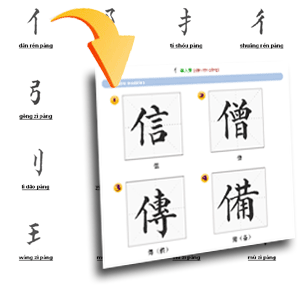
Each of the 4 characters have the "man" radical on the left. You would use this radical as the first step in looking up each character in the dictionary.
[10:25] What you used to do is that you would find the first one of these pieces – and there is a whole set of rules for that – the most prominent, the most important one of these pieces in a character. You look at the character, you’d figure what that piece was, sometimes you’d have to guess about that.
[10:41] Then you would look up in a very complicated index [in a dictionary]; you’d get a list of all the characters that contained that piece as their primary radical. Those would be grouped usually by the number of strokes that are not part of that radical. And then further sorted by the type of stroke that was the first stroke. So basically you’d have to figure out what the most prominent component is to this character, look that up in a very long, very small-printed index, go to the right page with a list of all the characters containing that radical, count the number of strokes – so you have to know Chinese stroke order pretty well and Chinese stroke break downs pretty well – count the number of strokes in the character outside of the radical, find that section of the index, and then scan through this long list of characters to find the character you are looking for.
[10:35] So even when you’re pretty good at this it usually takes 30 seconds to a minute and then you have to flip through the dictionary to find the actual things. It’s painstaking. It makes it really, really hard to read or made it really, really hard to read a Chinese text you didn’t know.
[11:51] EL: In terms of the radical, the radical – just to clarify for our readers – often does give the character meaning. So if you have the three water drops, you know that character is related to water. But with Pleco because you can use either the stylus on the Palm Pilot or for the iPhone or Droid, you can use your finger to draw the character, you don’t need to identify the radical anymore. So you don’t need to know which radicals have what meaning and you don’t necessarily need to know stroke order anymore – how the Chinese, for thousands of years have written the character. Do you think Pleco is downplaying the traditional way in which one learned Chinese? Has there been any loss in not forcing students of Chinese language to learn radicals or stroke order, if that’s even happening?
[12:42] ML: I think the art of Chinese writing and Chinese calligraphy should not be as prominent a part of the Chinese language curriculum as it is because, honestly, even Chinese people don’t do that that much anymore. For the last twenty years or so at least, the majority of written Chinese is written on computers. When Chinese people compose Chinese text on computers they don’t handwrite, they don’t use a radical index, they just key in the Romanized pronunciation of the thing they are trying to write.
[13:18] It turns out if you look at a Chinese computer keyboard, it looks like an American computer keyboard, it’s the same kind of letter based system. That’s way faster than anything character based with the exception of a specialized methods called wubi and cangjie that I won’t get into. Most Chinese people write Chinese with an English language keyboard and therefore don’t really ever need to – well hardly ever need to – do anything with stroke order.
[13:43] So the notion that American, European, other foreign students of Chinese need to – even Chinese students to some extent – need to learn to write really well is outdated. We

A character-intensive Chinese lesson!
don’t handwrite anymore; we haven’t been handwriting for decades. We use keyboards. [As for] stroke order, it’s an interesting historical item, it still has some relevance today in understanding how characters are built, certainly it can help you understand characters if you build up some fluency with radicals, with the way characters are constructed, with meanings of those piece, but I don’t think it is anywhere near as important to a Chinese curriculum as learning to speak, learning to read, learning to understand what people say. To the extent that Pleco is discouraging people from spending a lot of time early on in their Chinese studies learning to practice writing Chinese characters, I don’t think we’re hurting Chinese learning. I think we are helping people focus on the parts that really matter.
[14:42] EL: Do you have any idea about how a tool like Pleco or other translation tools, like NJ Star if you are on the computer, how that’s being used today in colleges and high schools in the United States to teach Chinese? Do you have any idea about that?
[15:01] ML: A lot of that actually has to do with the changing nature of the Chinese teacher population in the U.S. In the very early days it was sort of a random accumulation; you had a lot of people who had taken Chinese as a second language, knew enough and happened to already be teachers so they would have a little elective class at whatever school it was in Chinese.
[15:20] Then you had a bunch of disgruntled expats who left China in the 80s or 90s and were kind of set on this very old-fashioned way of teaching Chinese; very focused on rote memorization, on practicing things over, and over, and over again, and just sort of felt that the best sort of way to learn Chinese was the way they learned Chinese when they were kids which we would now consider outdated. We did the same things in the U.S. in those days which we no longer do, just very rote memorization-based.
[15:54] Recently however, [in] the last decade or so, younger people have started teaching Chinese, people who have come up more recently, people with educational degrees, people who have a more modern way of thinking about teaching language. So they’ve proven much more receptive to a natural language approach to learning Chinese. They increasingly appreciate that you maybe shouldn’t be quite so fixated on learning characters early. They appreciate the importance of exposing students to real world reading materials, not just things that were in a textbook, sort of made-up reading materials. They appreciate even more conversation practice.
[16:33] So Pleco, I think we have always been more in the latter strategy. We’ve been from the very beginning about helping people work with real Chinese more easily, lowering that barrier. As far as other tools, like Google Translate, I still don’t really view Google Translate as a Chinese learning tool. I view it more as a tool for people who don’t know Chinese at all or whose Chinese level is just not even close to what it would need to be to understand something to muddle through. In my early days of Pleco, I would sometimes run a Chinese language contract or a Chinese language document which I wasn’t sure of my translation, I would run it through [Google Translate] to sort of check to make sure I wasn’t missing something. It’s good for stuff like that. But it’s not really a learning tool, it’s more of a learning replacement. Sort of a mediocre translator to help you through stuff that you are just not confident to do yourself.
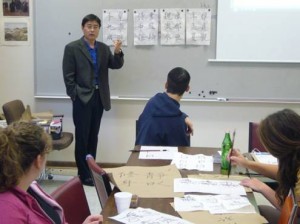 [17:29] EL: Let’s switch beers, oops, gears – I should let listeners know we are in a bar doing this interview. But let’s switch gears a bit and talk about your experiences in China and currently what Pleco is doing in China. Is Pleco used by Chinese students learning English and do you do a lot of business in China?
[17:29] EL: Let’s switch beers, oops, gears – I should let listeners know we are in a bar doing this interview. But let’s switch gears a bit and talk about your experiences in China and currently what Pleco is doing in China. Is Pleco used by Chinese students learning English and do you do a lot of business in China?
[17:52] ML: Actually, no. There are two reasons for that. Part of it is that we never really targeted that market. In the early days mostly because there was so much piracy it just didn’t seem worth it. We literally had people selling our Palm OS software on CDs in Zhongguancun, in computer markets, that looked so real that people would write to us for technical support for this pirated copy of our software because they didn’t realize they bought a pirated copy. So we kind of dismissed it early on as “well we’re not going to make any money off of this market anyway so let them make their own software.” And that’s what a lot of Chinese software companies did.
[18:32] More recently, it’s just that we don’t really think we can do it as well with the kind of materials we have. A Chinese-English dictionary for someone learning Chinese, you are going to want to have extremely sensitive vocabulary coverage, you want any possible word they might encounter to be covered, but you don’t need to be very detailed necessarily in the definitions. You may want a lot of example sentences, but you’re not try to provide comprehensive listing of every English word you might use to translate a Chinese word. A Chinese person is looking at Chinese to English dictionary almost like a thesaurus, at least that is one of its functions: “I have this Chinese concept I want to translate into English; I don’t necessarily need a comprehensive Chinese-English dictionary because if it doesn’t have this word I’ll type in another word that means the same thing; but I really want it to give me all the different ways of saying this in English and all the different commutations so that I can master the right way of doing this in English.”
[19:28] Fundamentally, Chinese-English and English-Chinese dictionaries, people learning Chinese and people learning English, are totally different. So we have focused all of our efforts on the people learning Chinese. Our software features are tailored toward them. A Chinese person doesn’t need an OCR system to look up a Chinese character; they just type in its pronunciation because they know it. While they seem like very similar operations, they’re really different enough that it doesn’t make sense for one company to focus on both. So we don’t.
[20:00] EL: In terms of your business, do you go back to China a lot with Pleco?
[20:07] ML: I go back about once a year. Meeting up mostly with companies that we do licensing business with, companies we get dictionaries from, companies we want to license more dictionaries from, companies that develop interesting technology we’d like to use. Occasionally we will run into a product that has some interesting idea that we want to either shamelessly copy or take inspiration from because there is a little bit of overlap between the process of Chinese people learning English and English speakers learning Chinese. Occasionally we will learn something from them and I think they have gotten some ideas from us over the years. But mostly when I go to China it is to talk to business partners.
[20:55] EL: You mentioned piracy as one of the reasons why….well, the big reason seems to be that the Chinese audience, the product you’re producing is for foreigners studying Chinese but you have mentioned piracy a little bit. Has that been a problem for Pleco in China? And do you do anything about that?
[21:16] ML: It depends on the product actually. It was a huge problem for us with Windows Mobile in 2008 or so. We released a new version we had been working on for two years and it was pirated almost immediately. That was a bummer because it really did hurt our sales a lot. But on iPhone there is really very little piracy problems because any iPhone that hasn’t  been what’s called “jail broken” to run non-Apple approved apps basically can’t run pirated software; it’s impossible, there is no way to do it, the phone will just refuse to run a pirated app. Jail breaking your iPhone violates the warranty. So we see very little piracy on iPhone.
been what’s called “jail broken” to run non-Apple approved apps basically can’t run pirated software; it’s impossible, there is no way to do it, the phone will just refuse to run a pirated app. Jail breaking your iPhone violates the warranty. So we see very little piracy on iPhone.
[21:56] On the Android it’s too early to know. We are hoping that it will take them a while to crack it and that it won’t be widely pirated. But at the very least on iPhones there is very little loss to piracy.
[22:12] EL: Before the iPhone, with the Windows-based [program] and it was pirated almost immediately, as a business person doing business in China, did that make you feel that you did not want to be in the Chinese market? What do you think can be done to change that? Or do you think it’s inevitable?
[22:36] ML: I think at some point you have to provide a better value proposition; that’s always been the issue with piracy; it’s true with media too. People will pay some money for the convenience of downloading your app legally – having updates, having support, the things that a pirated version simply can’t provide – are worth something to people. In a lot of cases it’s a pricing and a convenience problem. People pirate TV series because there is no easy place for them to watch them online without ads. If our software couldn’t be downloaded quite so easily, I think we would see a lot more piracy. If our stuff was only offered in CD say, people would pirate it because that would be the only way to download and get it immediately.
[23:21] The problem is that the Chinese naturally place a much lower value on a given piece of content than Westerns do just because of what they are used to paying for it. Even if a Westerner would consider our prices perfectly reasonable, a Chinese person might not. So we have this awkward situation – we’d have to make some sort of a Chinese market product priced at a level a Chinese person could be comfortable with in order to keep them from pirating. There have certainly been attempts at doing that, but really for us we’re happy with our primarily Western customer base. Really, the reason we are worried about piracy in China is that it makes it easier for honest Westerners [in China] who might otherwise pay us for our product to pirate it. We don’t really care about Chinese people using pirated copies of our software, we don’t think they were going to pay for it anyway; but Westerners might have. We want to make it just hard enough that they won’t pirate.
[24:10] EL: In terms of talking about piracy and some of the issues of Chinese law, as an online commerce operation do you have any experience with internet censorship, any of those issues that have been in a lot in the press lately with China?
[24:26] ML: We have never been blocked. We’ve taken certain preventative measures to make sure that things that might cause us to be Great Firewalled would be isolated. Our discussion forum site is on a different domain name, different IP address. So if the Chinese government ever took issue with something someone posted on our public forums, their block of that site would not prevent people from accessing our official company site and downloading our software and so on. So we’ve taken some measures against that but they haven’t really been necessary so far.

Slow download speeds in China
[24:57] There is a little bit of an issue just physically, network typology, in China with the Great Firewall. It is hard for a Western company to offer good download speeds for people downloading files, downloading software in China. There are some very expensive Chinese distribution systems that will work around that; we haven’t yet seen fit to pay, seeing that as a good value for us because they are generally tailored to much larger companies and they cost a lot of money and we can’t really afford it. So most people in China download our software from Hong Kong and get so-so performance but good enough that people don’t complain too much. It would be nice if it was easier for a foreign company offering relatively innocuous downloads to have a server in China so people could download our stuff more quickly.
[25:50] So the existence of ICP numbers and the difficulties of getting a website passed the firewall where you can distribute high speed downloads [or] media, etc. to Chinese people, that’s been a bit of a hassle but that’s the only issue we’ve had with China censorship so far.
[26:07] EL: In general, this problem with not having the quicker download speeds and the fact that you do have to do a little bit of a work around for your blog, which is basically questions and answers about the software, have you seen any changes in the Chinese government’s approach to the internet over the ten, twelve years that you’ve been doing business on line? A lot of the press has been talking about the increased laws that China has been passing to regulate the internet. But has that affected foreign business?
[26:40] ML: A little bit. It means that we need to use China-market specific means to reach our customers. We have a Twitter feed and a Facebook feed and those do absolutely no good for our customers in China because they can’t access Twitter or Facebook, so we need to have a work around. We need to have a Weibo blog too. Chinese customers can’t access YouTube so we have to have alternate videos for them. That didn’t used to be a problem years ago because they [the Chinese government] weren’t quite so aggressive in blocking social networking, in blocking open-content sharing sites. So that’s been a bit of a hassle.
[27:16] Beyond that….as far as the network typology problems I mentioned, download speeds, those have been as much of a hassle for the last ten years. It’s sort of the nature of the Chinese internet. It’s a bit harder to reach our customers, it’s more of an effort to share content, but it hasn’t changed for our purposes all that much.
[27:35] EL: Well, I think that does it for now Michael. Thank you very much for a very interesting and thought provoking interview! Thank you.

, is more than just a good story about basketball in China. Yardley’s micro-analysis of the Chinese Basketball Association (CBA) provides an important macro view of current US-China relations.
, it wouldn’t be worthy of the four stars this review has given it. Yardley uses the CBA and basketball in China to better describe the complexity that is U.S.-China relations. The subtitle of the book refers to this as a “cultural clash” but as Yardley’s story makes clear, that is a misnomer (and likely the result of an overzealous editor). Instead of the usual take that relations are strained, Yardley portrays the complicated dance – where some times foots are stepped on and shins
and Ian Bremmer’s The End of the Free Market
).
, Yardley challenges this increasingly common perception by analyzing the hot mess that is the Chinese Basketball Association (CBA). The CBA is anything but a competitive league. The CBA’s goal is not to make money or even to provide China’s sizable basketball fan base with a satisfying experience, or even to develop talent. Instead talent is largely stunted, the league is not terribly competitive and even a team like the Shanghai Sharks doesn’t take in much of a profit, or more aptly, doesn’t care to.
were parts about the American players’ response to the often unique, Chinese ways of basketball.
is a must read for anyone who has any dealings with China – Yardley convinces the reader not just of the economic bond between China and the US, but the emotional one. And it’s important in today’s world to be reminded of the bond that exists between people.





, by Jim Yardley (Alfred A. Knoff 2012), 300 pages.
 On Facebook
On Facebook By Email
By Email 





